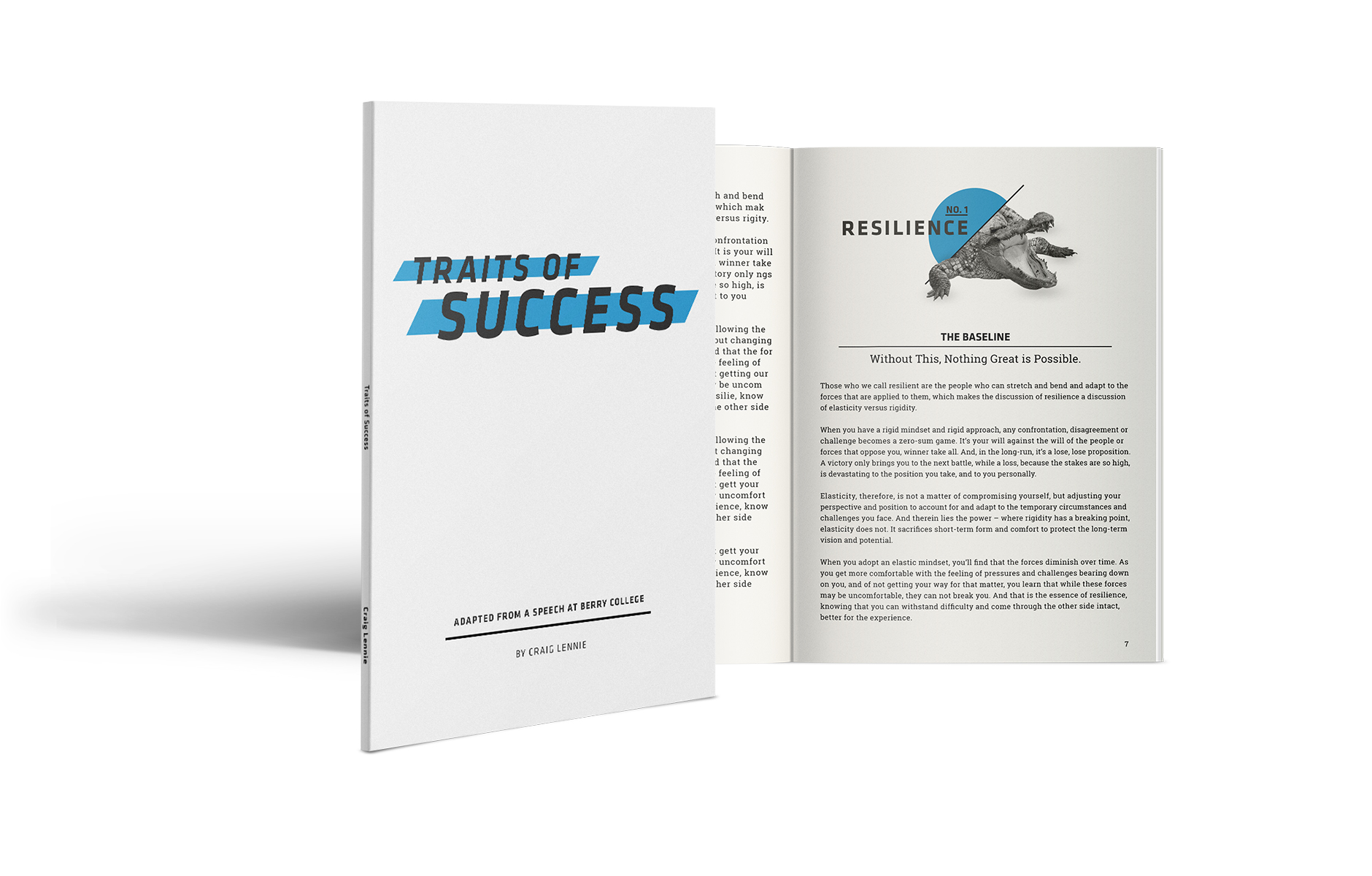
Originally delivered as a speech to graduating seniors at Berry College as part of an executive roundtable, Traits of Success is a continuation of the age old hope that the next generation of thinkers, doers and makers can learn from the experiences and difficulties of those who came before them. After the incredible, positive response at Berry, we adapted the speech into a booklet, with a full book planned for the future.

The Baseline. Without This, Nothing Great Is Possible.
Those who we call resilient are the people who can stretch and bend and adapt to the forces that are applied to them, which makes the discussion of resilience a discussion of elasticity versus rigidity.
When you have a rigid mindset and rigid approach, any confrontation, disagreement or challenge becomes a zero-sum game. It’s your will against the will of the people or forces that oppose you, winner take all. And, in the long-run, it’s a lose, lose proposition. A victory only brings you to the next battle, while a loss, because the stakes are so high, is devastating to the position you take, and to you personally.
Elasticity, therefore, is not a matter of compromising yourself, but adjusting your perspective and position to account for and adapt to the temporary circumstances and challenges you face. And therein lies the power – where rigidity has a breaking point, elasticity does not. It sacrifices short-term form and comfort to protect the long-term vision and potential.
When you adopt an elastic mindset, you’ll find that the forces diminish over time. As you get more comfortable with the feeling of pressures and challenges bearing down on you, and of not getting your way for that matter, you learn that while these forces may be uncomfortable, they can not break you. And that is the essence of resilience, knowing that you can withstand difficulty and come through the other side intact, better for the experience.
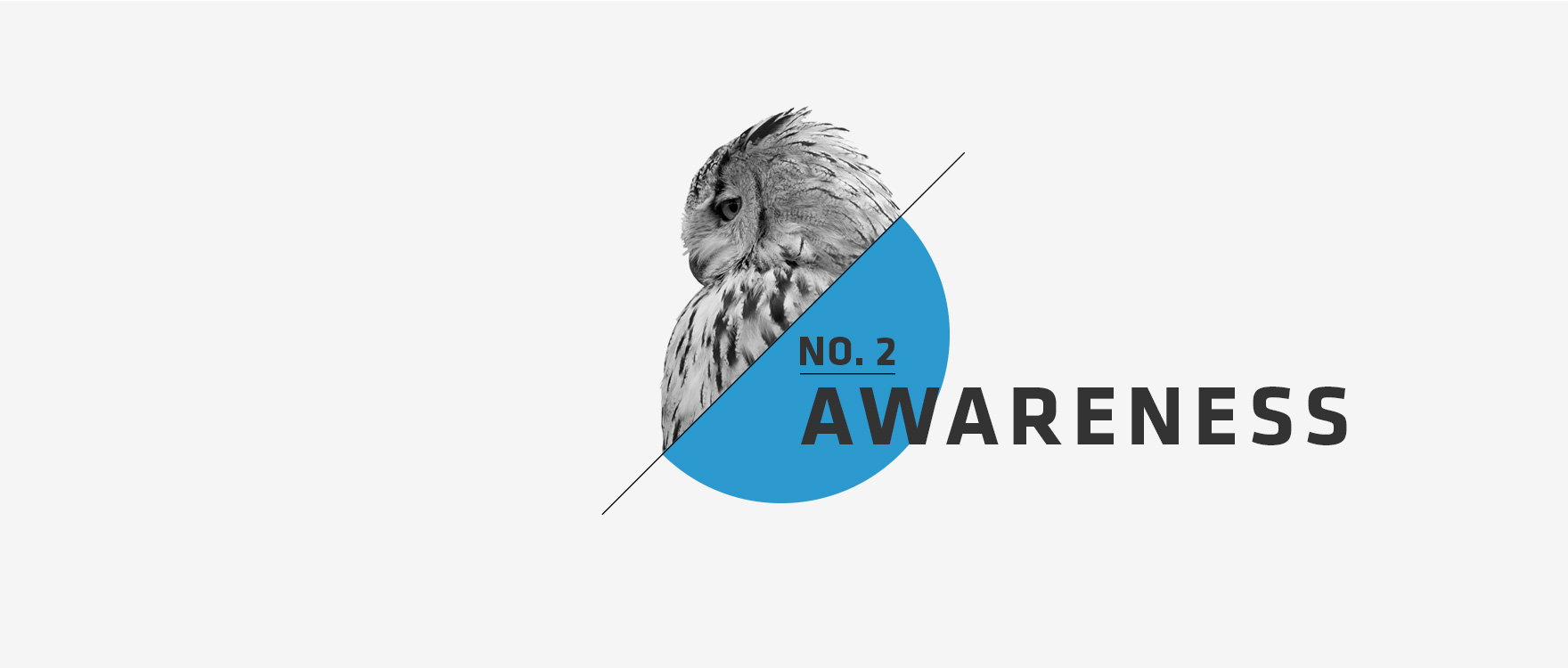
The Outlook. Internal Desires Meet External Forces.
One of the hardest things to master in business, or life, is finding the balance between your self-interest and the collective good. We may be the masters of our destiny, but our destiny depends greatly on the actions and influence of others. Thus, in a cooperative or competitive environment, it’s crucial to understand how the various components fit together in the larger ecosystem in order to make good decisions.
This skill becomes easier over time, as you gain experience and expand your frame of reference, because what it comes down to is your ability to interpret information and events based on the circumstances surrounding them. In other words, your ability to put them in context.
But context also depends on your ability and willingness to look beyond the small circle that contains you and the events and information that directly surround your present situation. To understand the historical precedents and underlying motives driving other’s actions. To understand the climate, economic, emotional or other, in which a decision is to be made. To understand your role not in terms of your tasks, but in terms of how your contributions fit into the larger chain of events.
Ultimately, the importance of awareness is proportional to your ambitions and how much those ambitions require participation with or in the larger collective. The further the distance you wish to travel and the more external elements you need to engage with to achieve your goal, the wider your view must become.

The Mindset. Risk, Reward and the Self-Fulfilling Prophesy.
It’s impossible to live a life or have a career free from risk and uncertainty. In fact, how you deal with the unknown and unpredictable is a great indication of how you will fare in both arenas, because how you approach those moments of doubt and challenge are self-fulfilling to the outcome.
So, in that respect, when discussing anticipation, we must also discuss its opposite – anxiety. When you approach situations with anxiety, you will do everything in your power to reduce your risk and reduce the potential for blame or responsibility. And when all you see is what might go wrong, it’s hard to muster the strength or motivation to get through difficulties.
When you approach them with anticipation, however, you meet challenges with optimism and energy. Rather than seeing all the ways things might fail, you can see the potential for success. Difficulties are tempered by the potential for a positive outcome.
And here’s the important thing to think about and watch out for – every relationship, personal or business, every office and every organization falls somewhere on this spectrum. In business, it’s an often-unidentified part of company culture, because anxiety and anticipation are highly contagious. When one person acts with anxiety, it signals to the rest of the group that they too should protect themselves, lest they be accountable for failure. And it creates a culture of fear and finger pointing.
But when people work with anticipation, it creates positivity and energy. It signals to the group that it’s okay to take risks, that it’s okay to try new things, because you’re all committed to the potential and to each other. It’s a group effort, not every man and woman for themselves. And that is where innovation occurs, in a supportive environment that encourages people to explore and take risks, so long as those risks don’t jeopardize the group.
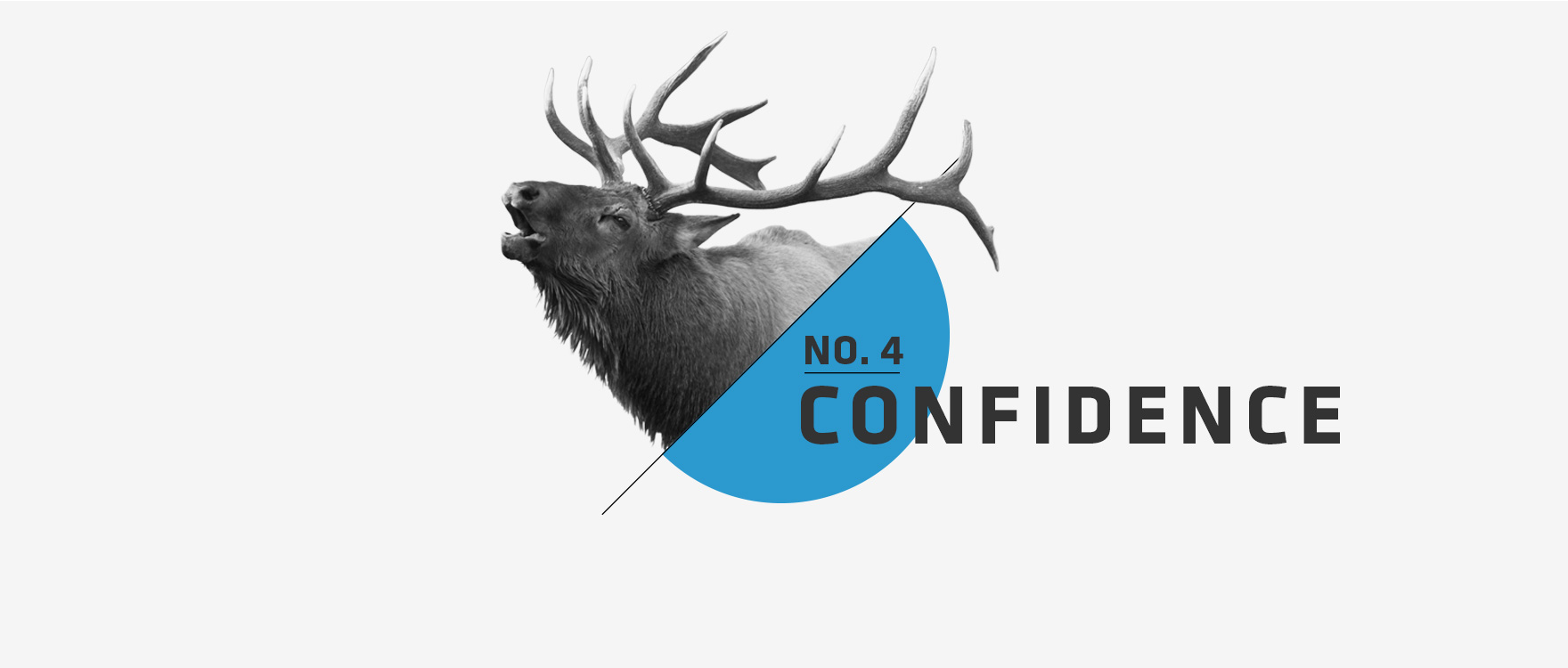
The Approach. Turning The Tables On Fear And Doubt.
When people talk about confidence, they talk about it as a feeling or a belief – you believe in yourself, in your abilities. Belief, in this case, is the byproduct of experience. Over time you build a dossier of reasons to believe in, or question, yourself, constantly adjusting your confidence levels both for specific tasks and as a universal operating state.
The takeaway from this rather obvious observation is confidence is something you acquire, which again sounds mundane until you consider the ramifications it has on how confidence is gained and lost – through action. Since what increases your confidence can also decrease it, how do you avoid getting paralyzed by this state of conflict?
The answer is where you put the value, in the attempt or in the result. If you base your confidence only on the results of your actions, you’re left with a black and white scale to measure success and failure, making each action a high-risk endeavor. But if you base your confidence on your ability to take action, you gain each time you make an attempt – and, more importantly, the results become a feedback loop that show you where you are and how you can improve.
This sets the table for you to make another attempt and increases your odds of reaching your goal, of fulfilling your vision, of reaching your ideal of success, because it takes the fear out of taking action. Once you aren’t afraid to take action in one venue, it becomes a torch you carry with you in the other aspects of your life.
Last, don’t mistake arrogance for confidence. Where confidence is a virtue, arrogance is a vice. It means you prefer your own ideas, devalue others and disregard their contributions, and usually results in people feeling diminished, rejected or angry. Arrogance is a career derailer and a difficult trait to overcome for two reasons; it’s hard to get feedback since people hesitate to give it and, even when given, arrogance doesn’t allow critical or dissenting opinions to unseat or challenge their mindset or position.
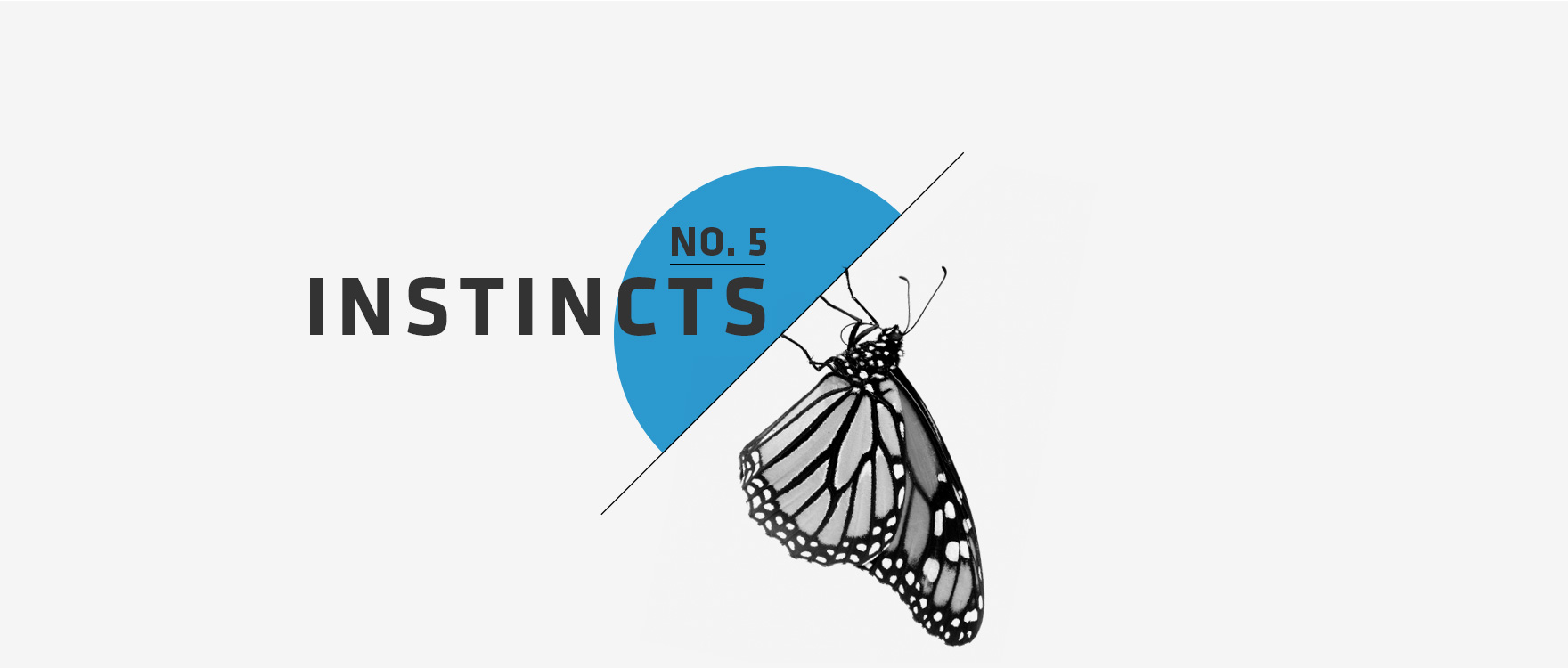
The Feeling. Living With Our Decisions.
With instincts, what we’re really talking about is the decision making process. How you interpret and respond to the stimuli around you. And, in this sense, there are two kinds of decisions – those driven by our internal process and those driven by external forces.
When people say you should trust your instincts, what they mean is you should strive to make decisions based on your internal process. Based on your intuition. Based on your personal ethics and judgment and integrity. Because, when you allow external forces to drive your behavior, that’s when you find your actions in conflict with your principles.
The reason people repeatedly tell you to trust your instincts is because those external pressures are immense. Financial security, job security, your career, your reputation – in the heat of the moment some or all of these may feel as if they are in jeopardy. And that’s when it is most important to trust your gut. The biggest decisions you make in life are those when the pressure is greatest and you have the courage to follow your instincts.
Your instincts will not always be right. You will make mistakes along the way. Everyone does. But, beyond the integrity you will feel and others will recognize, the added power of following your instincts is the way it allows you to deal with setbacks. When you trust yourself, you can take solace in knowing that you did what you thought was right. When you don’t, what you’re left with is regret. Knowing you could’ve done better. Knowing you should’ve listened to yourself.

The Fire. Creating and Fueling Your Flame.
We’ve all heard the quote, do what you love and you’ll never work a day in your life. And most people, when they hear that, they think it’s not quite that easy. And to a certain extent that’s true. Having passion for your work is difficult. Because passion is an active thing, something you have to maintain. A fire that will only burn as big and bright as you provide fuel for.
But that is also what makes passion the great equalizer. Talent is a limitation. It is the maximum of your inherent abilities, the most and best that you are capable of at any given time. And, while some people may have an abundance of talent, they are still limited by their willpower to use it to its fullest. And to continue building upon it.
Passion is a bridge. A means to exceed those limitations. It’s the motivation to keep bumping up against them until you finally figure out how to bypass them. Because you can acquire talents. You can acquire resources, money, experiences. But passion is something that you have to provide for yourself. The other pieces may help your passion grow, but if there is no fire to fuel, there is no light, no energy.
The ultimate power of passion, beyond expanding your limitations, is that it has magnetism. It acts as a beacon to other passionate people. It pulls them in and adds their flame to yours, creating a shared vision and excitement and desire to make something happen. And that is how great things are created. When people come together and amplify their individual talents through a shared vision, they can accomplish the outlandish or the seemingly impossible.

The Longview. Understanding The Relative Importance of Things.
In your life and career you’re going to have successes and failures and the ability to maintain a sense of proportion as you experience either is imperative. Think of it as a scale – the goal is to preserve balance between these opposing forces and avoid the kinds of wild swings in either direction that can knock you off course.
Success would seem to be the easy side of this coin, but when it comes to your successes it’s important to celebrate them without defining yourself by them. Easy to do when all is going well, but in times of distress, if you define yourself by your successes you lose your identity in your failures.
The most important part of failure is to learn from it, but again don’t let them define you. Own them. Take responsibility for them. Then learn from them. They are the light that shines through imperfections or mistakes. They give us direction, show us what new knowledge we must learn, what new skill we must master, where we must go next, what must change, modify, or revise.
Learning to make failure productive instead of destructive is crucial, and something we can all learn to do. The next time you experience a failure, describe it in terms of what you learned not in terms of how you failed. And hang on to it. What you learn from your failures is far more valuable than what you already know from your successes.
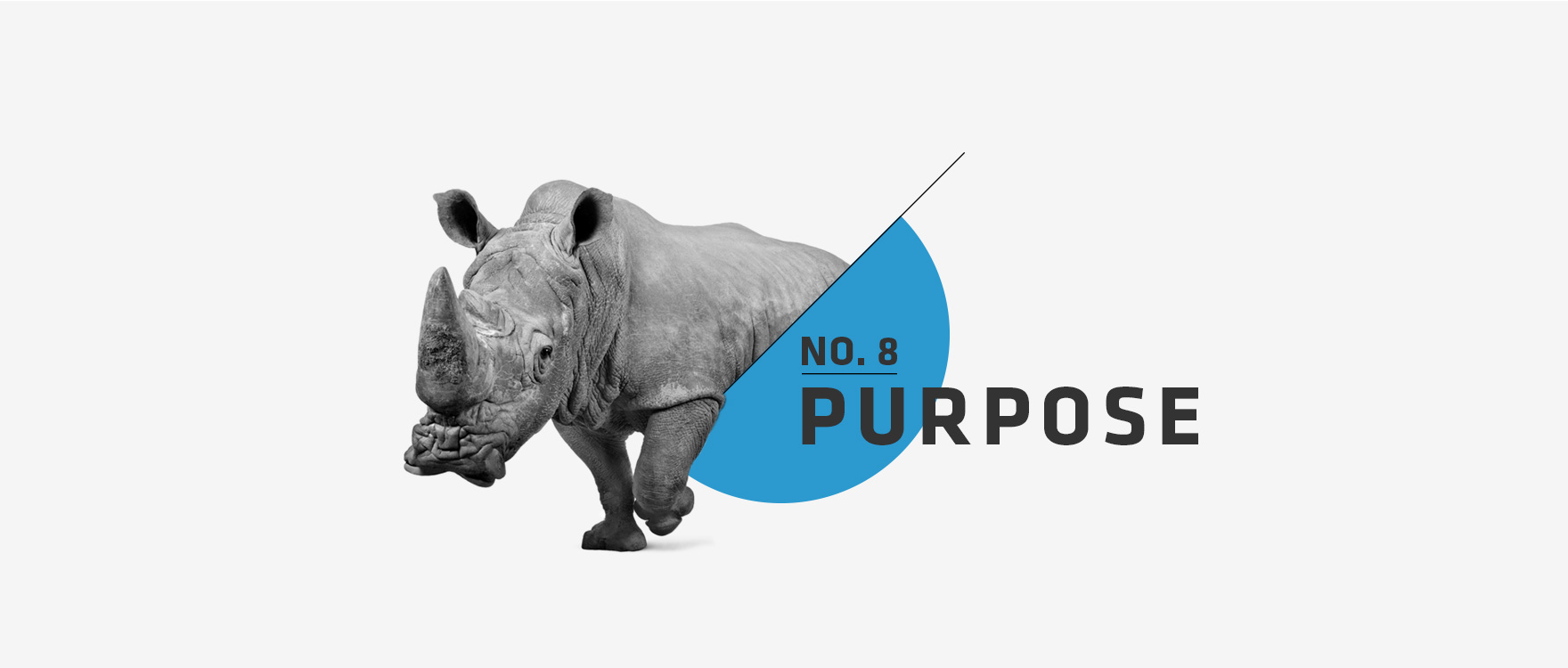
The Reason. Picking a Side on Want To Versus Have To.
Simply put, your purpose is why you are here and what you are trying to achieve. It is deeply personal, it exists outside the realm of judgment and it is the most important aspect of who you are that an unfortunate amount of people don’t truly understand about themselves because purpose is a conscious act.
Purpose requires you to be engaged with your desires and to take accountability for your actions, which makes it challenging to your ego. It sets a standard you must live up to and makes it difficult to accept or excuse behavior that doesn’t meet it. It’s much easier to let your auto-pilot to take the wheel and take you down the path of what you’re “supposed” to do because it gives you an out – if you don’t succeed you can say you didn’t really want it or it wasn’t important anyway.
Another source of conflict when it comes to purpose is many people confuse it with their goals. Goals are the things you want to do or achieve, where purpose is the reason why you want to do or achieve them – a subtle difference, but one with enormous implications on your sense of fulfillment. Where goals are milestones on your journey, purpose is the destination – without it you have no way to evaluate the true value of accomplishing a goal, or whether it brings you closer to where you want to be.
The truest test of purpose is in how you approach your work. If you are checking off the boxes that need to be completed, and if, when you do, your reaction is to stand back and say I worked hard for this, then you have achieved a goal – completing the task – and received a temporary sense of accomplishment.
But, if you attempt to find the value in everything you do, even when you think the assignment or project or experience isn’t necessary or relevant to your ambitions, and if, when you accomplish something, your reaction is to stand back and say I learned so much doing this, then you have made progress toward your purpose. Your achievements become a symbol of the person you are and the person you want to be.

The Advantage. Setting The Stage For Happenstance.
To some, the last trait in this list is not a trait at all. It just so happens, however, they are wrong. Luck is a skill. And, luckily, research backs up the idea that lucky people are not random recipients of positive fortunes, but that they share an approach to life that puts them in position to be “lucky”.
The research, done by Richard Wiseman, a psychologist at the University of Hertfordshire, revealed lucky people generate good fortune via four basic principles.
- They are skilled at creating and noticing chance opportunities
- They make lucky decisions by listening to their intuition
- They create self-fulfilling prophesies via positive expectations
- And they adopt a resilient attitude that transforms bad luck into good.
Noticing opportunities – awareness and anticipation. Listening to their intuition – instinct and confidence. Self-fulfilling prophecies – passion and purpose. Resilient attitude – perspective and, obviously, resilience. And if you think it was luck that all those traits lined up – well, maybe you’re right.
